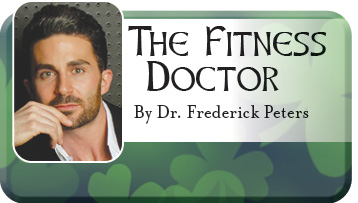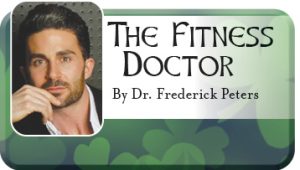
 The Fitness Dr.: Are You Dieting Correctly?
The Fitness Dr.: Are You Dieting Correctly?
Dr. Fredrick Peters
As the holidays approach, many of us may be concerned about gaining a few extra pounds. Perhaps you are even considering starting a “before Thanksgiving” diet.
But are you sure your “diet” is actually going to work? According to the Centers for Disease Control and Prevention, nearly half of U.S. adults try to lose weight each year. Many of these dieters attempt to shift weight by eating healthier and including more fruits, vegetables and salads in their meal plans. However, new research to be presented at the American Heart Association’s Scientific Sessions 2022, this November, finds there is a mismatch between the perceived and measured diet quality improvements for many dieters – they think they are eating healthier than they are.
Guidance about healthy eating from the American Heart Association, issued in 2021, advises adults to eat a variety of fruits and vegetables, opt for whole grains rather than refined grains, choose healthy protein sources, substitute non-fat and low-fat dairy products for full-fat versions, choose lean cuts of meat (for those who eat meat), use liquid plant oils instead of tropical oils and animal fats, choose minimally processed rather than ultra-processed foods, avoid foods and beverages with added sugar, choose foods with little or no added salt, and limit or avoid alcohol.
In the recent study, researchers evaluated the diets of 116 adults aged 35–58 years old who were trying to lose weight. Study participants met one-on-one with a dietitian to discuss their nutrition and then tracked everything they ate and drank every day for one year on the Fitbit app. They also weighed themselves daily and wore a Fitbit device to track their physical activity.
Healthy Eating Index
The researchers calculated a Healthy Eating Index (HEI) to assess how closely a person’s diet aligned with the U.S. government’s Dietary Guidelines for Americans. A score of “0” to “100” was possible when using the HEI, with a higher score indicating a healthier diet. The score was based on the frequency with which people ate various dietary components such as fruits, vegetables, whole and refined grains, meat and seafood, sodium, fats and sugars. A starting score and a finishing score were determined subjectively, by the participants themselves, as well as by the researchers, after the participants completed a 24-hour food recall of everything they had eaten during two days at the beginning and two days at the end of the study, respectively.
The self-assessment of their beginning diet was a “look back,” as they scored both their starting and ending diets at the end of the study. The difference in their starting and ending score was their perceived diet change. A difference of six points or less between the researchers’ HEI score and the participant’s perceived score was considered “good agreement.”
At the end of the study, about one in four participants’ scores had good agreement between their perceived diet score and the researcher-assessed score. The remaining three out of four participants’ scores had poor agreement, with most reporting a perceived score that was higher than the HEI score assigned by the researchers. The average perceived score was 67.6, and the average researchers’ HEI score was 56.4.
Healthy Diet Disconnect
They found that while people generally know that fruits and vegetables are healthy, there may be a disconnect between what researchers and health care professionals consider to be a healthy and balanced diet compared to what the public thinks is a healthy and balanced diet. When considering the change in diet score over twelve months, only one in ten participants had good agreement between their self-assessed change, and the change assigned by the researchers. At the end of the study, participants had only improved their diet quality by about one point, based on the researcher-assessed score, while participants estimated that they had made, on average, an eighteen-point improvement.
People attempting to lose weight, or health professionals who are helping people with weight loss or nutrition-related goals, should be aware that there is likely more room for improvement in the diet than may be expected. There needs to be concrete information on what areas of their diet can be improved and how to go about making healthy, sustainable nutrition changes.
Overestimating the perceived healthiness of food intake could lead to weight gain, frustrations over not meeting personal weight loss goals or lower likelihood of adopting healthier eating habits. While misperception of diet intake is common among dieters, these findings provide additional support for behavioral counselling interventions that include more frequent contacts with health care professionals to address the gaps in perception and support long-lasting, realistic healthy eating behaviors.
Are you sure you are “dieting” correctly?
*Dr. Peters is the founder of “The Fitness Doctor” (www.thefitnessdoctors.com) and a professor of Health & Human Performance. He has a Ph.D. in Physiology from Kent State University and is a certified member of the American College of Sports Medicine. Dr. Peters is also a graduate of St. Ignatius High School and John Carroll University. If you found this article interesting, read more on his website. He can be reached at [email protected].

Monthly newsmagazine serving people of Irish descent from Cleveland to Clearwater. We cover the movers, shakers & music makers each and every month.
Since our 2006 inception, iIrish has donated more than $376,000 to local and national charities.
GET UPDATES ON THE SERIOUS & THE SHENANIGANS!